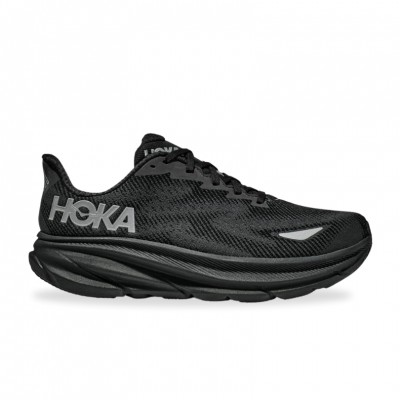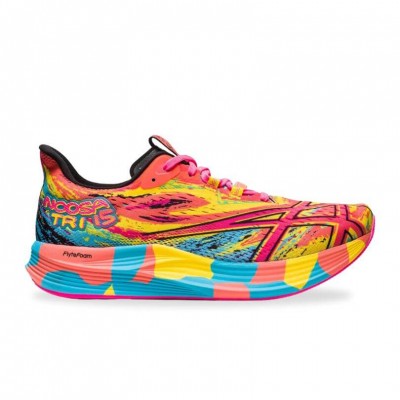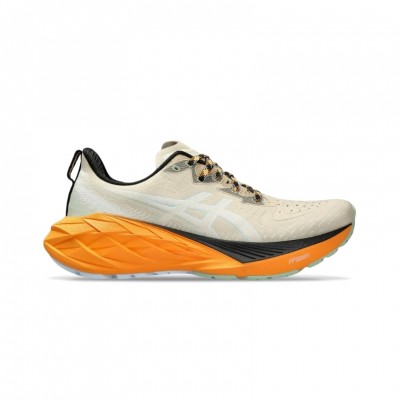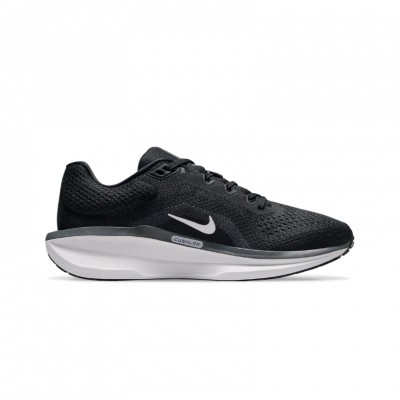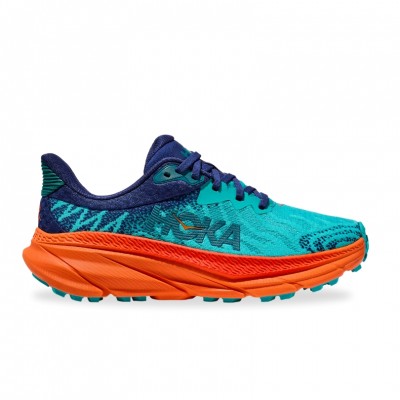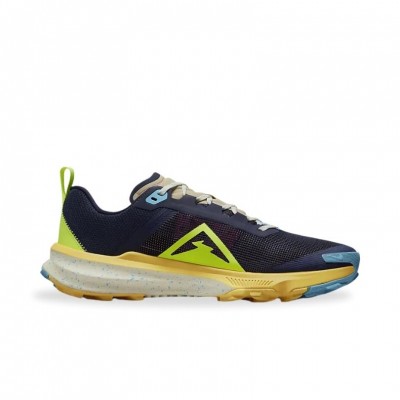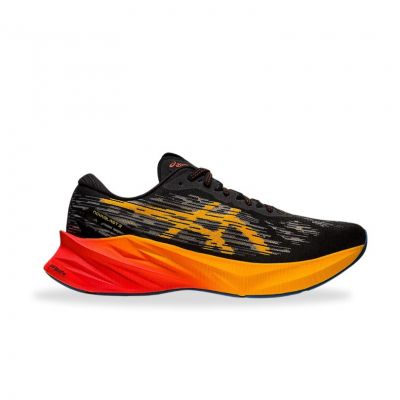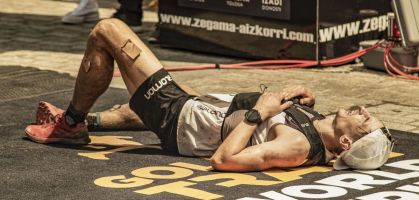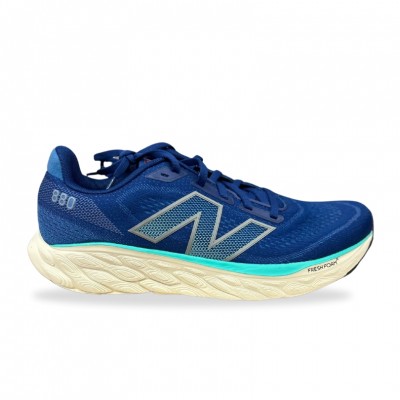For runners, whether we are regular or elite athletes, understanding the relationship between food intake and performance is information that will help us to improve not only our performance, but also our health. We, mainly regular athletes, are always on a tight schedule and many times we have no other option but to go out running right after eating. We are going to try to analyze the physiological effects of running after a meal, and if it is healthy or not to do it.
We're going to look at how the body handles that battle for blood flow between digestion and exercise, the gastrointestinal discomfort that can arise, and the impact of different types of food on your ability to run. Plus, we're going to give you science-based strategies to mitigate these negative effects and improve your performance and overall well-being. Let's get to it...

Digestion and blood circulation
When you eat, your body begins the process of digestion, which requires a considerable amount of energy and blood flow. Blood is redirected to the digestive system to help break down food and absorb nutrients. But what happens is that if as soon as you eat you decide to exercise, we're going to have an extra demand for blood flow to your muscles involved in exercise.
Not sure which running shoe to choose?
In a few simple steps we help you to choose the ideal running shoe for you
Go to the Shoe FinderThe work of blood flow
During digestion, blood flow is concentrated in the gastrointestinal system. However, if we put on our running shoes and go for a run, our muscles will also demand a significant increase in blood flow to receive oxygen and nutrients needed to exercise. This demand can lead to a lack of optimal digestion and physical performance.
When you run, especially when you run intensely, your leg muscles require more blood flow to keep them oxygenated and to eliminate carbon dioxide and other metabolic waste. When this happens, this increased demand reduces the amount of blood available to the digestive system, slowing digestion and potentially causing discomfort such as cramping or nausea.
Gastrointestinal discomfort
Thus running immediately after eating can cause various gastrointestinal discomforts, which can vary in severity depending on the type and amount of food eaten. These discomforts include:
- Nausea: Movement during running can agitate stomach contents, causing nausea.
- Acid reflux: Physical activity can cause stomach acid to move into the esophagus, causing burning.
- Cramping: Abdominal cramps can occur due to the extra effort required to digest food while running.
- Bloating and gas: Digestion produces gas, and gas can be especially uncomfortable while running.

Effects on performance
Performance during a run can also be significantly affected if you run immediately after eating. Chances are, if you've ever done it, you've felt sluggish and heavy if you haven't waited long enough after a full meal. This may be due to the fact that the body's energy is divided between digestion and exercise, which prevents the muscles from receiving all the oxygen and nutrients needed for optimal performance.
Impact of different types of food
Different types of foods have different digestion times and effects on physical performance so they impact our bodies differently:
Foods high in fat and fiber.
Foods high in fat and fiber require more time to digest. Fiber, while beneficial to digestive health, can cause bloating and cramping if consumed in large amounts before running. Fats delay gastric emptying, which can cause a feeling of heaviness during the run. For these reasons, it is advisable to wait at least two hours after consuming high-fat, high-fiber foods before going for a run.
Simple carbohydrates
Simple carbohydrates are digested quickly and can provide a quick source of energy. They are a good choice if you need a quick meal before a short run. Examples include toast, bananas and applesauce. These foods, being low in fiber and fat, are less likely to cause gastrointestinal discomfort.

And are there any risks to our health?
It is true that running immediately after eating can also have more serious health implications.
Reactive hypoglycemia
For some people, running right after eating can cause a rapid drop in blood sugar levels, known as reactive hypoglycemia. This can cause symptoms such as dizziness, weakness and disorientation. Reactive hypoglycemia occurs when the body releases insulin in response to a meal, lowering blood glucose levels too quickly just when it is needed for physical activity.
Risk of injury
Feeling uncomfortable or experiencing cramps while running can affect your form and technique, increasing the risk of muscle or joint injuries. Maintaining correct posture and an efficient stride is crucial to preventing injury, and any discomfort can compromise these techniques.
So what do I do if I can only go for a run after lunch?
- Wait the right amount of time
Waiting 1.5 to 2 hours after a full meal is ideal to avoid gastrointestinal discomfort and ensure nutrients are absorbed properly. If you have consumed a light snack, wait 30 to 60 minutes before going for a run.
- Choose easily digestible foods
Opt for foods that digest quickly and do not cause discomfort. Simple carbohydrates such as toast, bananas or applesauce are good choices. Avoid high-fat, high-fiber foods before running to reduce the risk of gastrointestinal discomfort.
- Maintain good hydration
Adequate hydration is very important before, during and after running. Drinking enough water can help ease digestion and prevent muscle cramps.
And what does the science say?
A study in the Journal of the International Society of Sports Nutrition suggests that, for runs longer than 60 minutes, it is critical to have adequate carbohydrate intake before the run to maintain performance and prevent fatigue. Carbohydrates are stored in the muscles and liver as glycogen and released as glucose, the body's most accessible energy source. Depleting these stores can result in decreased performance and feelings of fatigue.
What to eat according to the time of day
Running in the morning
If you prefer to run in the morning, consider eating a dinner rich in complex carbohydrates the night before, such as quinoa or sweet potatoes, along with protein and healthy fats. This will help you have a stockpile of nutrients ready for your morning run. If you need something before your run, a light snack such as a piece of fruit or a handful of cereal can provide the energy you need without causing discomfort.
Running at midday
For midday runs, the previous meal can have a significant influence. If you had lunch more than four hours earlier, a small snack to replenish energy, such as a piece of fruit or some crackers, may be necessary. If your lunch was more recent, wait at least two hours before running to avoid discomfort.
Running in the afternoon - evening
For afternoon runs, a light to medium snack about an hour before running is ideal. Half a turkey sandwich, a yogurt with fruit, or some hummus with pita bread are recommended options. If you're short on time, a quick-digesting carbohydrate such as a cracker or fruit may be enough to keep your energy levels up without causing discomfort.
The importance of a balanced diet

You already know proper nutrition is key to improving our performance. A correct balance of carbohydrates, proteins and fats will help you perform better in your runs, and also help you recover faster and prevent injuries.
Carbohydrates
Carbohydrates are the main source of energy for runners. During running, the body burns a combination of carbohydrates and fats. Carbohydrates are stored in the muscles and liver as glycogen and released as glucose, providing quickly accessible energy. It is important to keep your glycogen stores full to avoid "hitting a wall" during a race.
Protein
Protein is essential for muscle repair and rebuilding after running. Consuming protein after a race helps kick-start the recovery process, allowing you to get back to training faster and with less risk of injury. Suitable protein sources include chicken, fish, yogurt, eggs, seeds, beans and tofu.
Fats
Fats are an important source of energy, especially during long running sessions or middle- and long-distance competitions. However, because they are stored mainly in adipose tissue and muscle tissue, the body needs more time and energy to convert them into fuel. It is advisable to consume healthy fats, such as those from avocados, nuts and olive oil, but avoid eating them immediately before running to prevent digestive discomfort.
Read more news about: Nutrition



